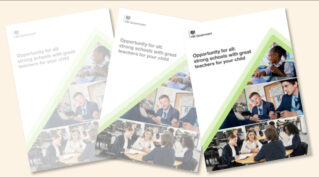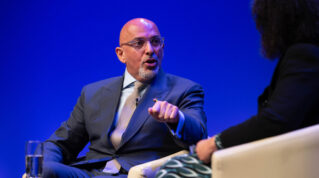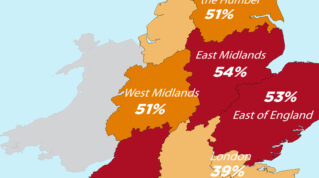We have lofty ambitions for our children, and I know schools up and down the country do too. By 2030, we want 90 per cent of children to leave primary school having achieved the expected standard in reading, writing and maths. By the same time, average GCSE attainment in both English language and maths should have increased to grade 5.
Strong trusts are at the very heart of these ambitions, outlined in our schools white paper. A trust-led system is the right thing to aim for, but we need school leaders and teachers to help make sure every trust is a strong one.
The empirical evidence to date shows that these strong trusts are highly effective at improving schools. But it is not just about school improvement: we believe that families of schools are more likely to be successful as they create better opportunities for staff, have support in managing finance and free up time for teachers to focus on teaching.
Yet as minister for the school system, with academies key to my remit, I know there are schools that remain nervous about what a fully trust-led system might mean, for them and for the wider system.
These concerns are not without merit: not all trusts are delivering in line with the strongest – but all should be doing so. And even if they were, the trust system we have today was never designed for all schools to be in trusts.
These are problems that need to be addressed if our trust-led system is to succeed.
Our plans – created after listening to parents, students, teachers, trust leaders – have been designed to share best practice in delivering educational excellence, a well-supported workforce and sound use of funding. I want to expand strong trusts and increase the number of trusts that are strong.
Success can only be found if teachers are part of the solution
We are going to be clear on what we mean by strong – and what we don’t mean – by putting a new definition of trust strength at the heart of our review. This definition will include more than outcomes, but also inclusion and staff development, which are vital to schools’ and students’ success.
These are changes this government is committed to making, and we need experts working in schools to think about how their school can make the biggest possible impact in the system of the future.
We want to understand and address the problems teachers have already identified.
We want to deliver on the aspirations of parents for their children, wherever they live.
Our upcoming trust regulatory framework review, which we expect to last until the end of this year, is our chance to come together to make sure we find the best solutions.
What we find in this process will complement our wider changes to the school landscape, all aimed at making trusts as strong as possible – from the introduction of a new collaborative standard that will require trusts to work constructively with each other, their local authorities and the wider public and third sectors, to supporting schools with consecutive Ofsted judgments below ‘good’ to join strong trusts, or changing the rules to allow local authorities to set up trusts.
I firmly believe they are the right actions to strengthen the school system and support our shared journey towards excellent teaching for every child by 2030 – ultimately the most important outcome of this work.
We must work together if we are going to achieve this, and my door remains open to the sector, schools and families. I always want to talk to those who feel they have new evidence, a new piece of the puzzle to fill in, or something to add to the conversation.
I know those working in schools share our unwavering commitment to children and young people and delivering the education they deserve. I also know that success can only be found if school leaders and teachers are part of the solution.
If you can get behind our changes and look at how we can help you make the biggest possible impact, children today will thank us in years to come.
















Your thoughts